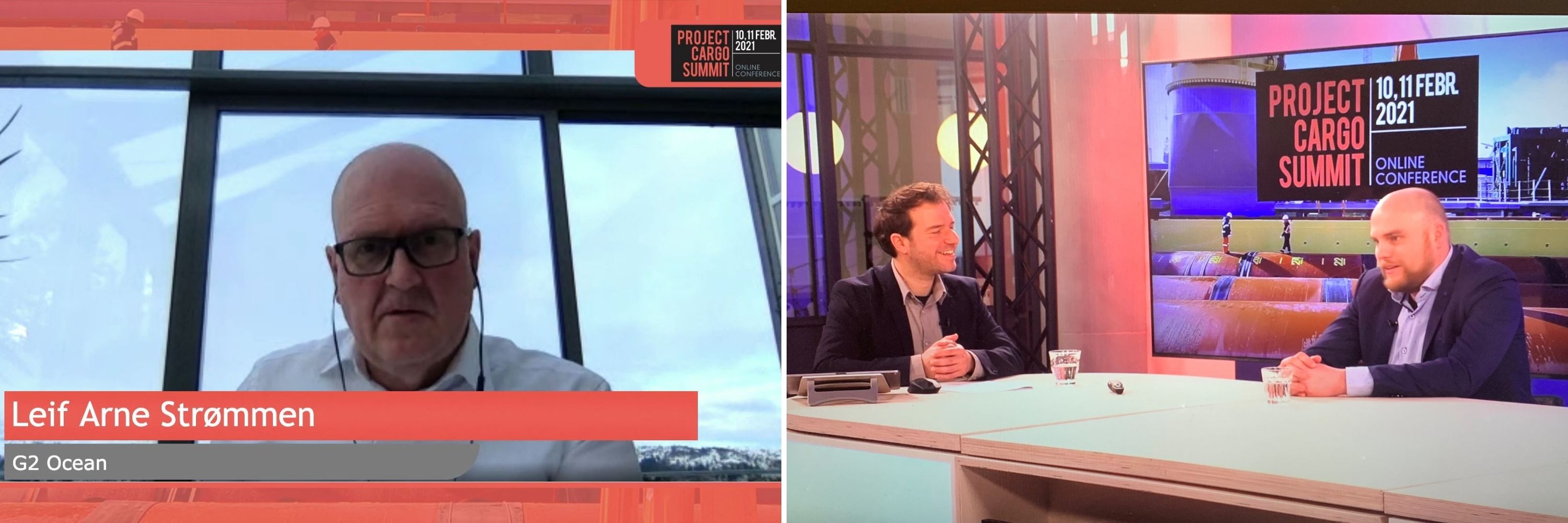The shipping industry: A key enabler to offshore wind

“The fast-growing offshore wind sector represents major opportunities for the shipping and logistics industry,” said Vice President Project Cargo Leif Arne Strømmen in a panel discussion on 10 February.
Increased emphasis on climate, the phasing out of fossil fuels, low electricity rates and new technology have led to rapid growth in the offshore wind industry.
At the same time, the industry is facing a significant increase in the size of offshore wind turbines: in the next ten years, many offshore wind turbines will have blades of at least 125 meters.
“The fast-growing offshore wind sector represents major opportunities for the shipping and logistics industry, but we are also facing many challenges,” said Vice President Project Cargo Leif Arne Strømmen at G2 Ocean in a panel discussion at the Project Cargo Summit.
‘Challenges are opportunities’
The online event was arranged on 10 – 11 February and brought together professionals from the global project cargo, breakbulk, and heavy-lift industry to discuss the development in the offshore industry.
Under the title ‘Is the logistics industry ready for growth?’, the panellists gave an overview of the main challenges faced by the logistics industry to keep up with the fast-evolving offshore wind market:
- Insufficient storage space for energy components at ports
- Specialized installation vessels and vessel crane capacity
- Transportation on land, especially in urban areas with a high density of human structures such as houses, buildings, roads, and bridges
- Enough tonnage with sufficient crane capacity to transport turbine components
Head of Project Cargo EMEA Bogdan Dima at Kintetsu World Express is looking forward to supporting the growth of offshore wind. He urged the logistics industry to transform the challenges into opportunities.
“This situation creates opportunities for the ports to redesign their storage and lifting capacities. It also creates opportunities for ship owners to upgrade their fleet by investing in new specialized vessels,” Bogdan said.
The panel discussion addressing the development of the offshore industry starts at 1:00:50.
‘Collaboration is key’
Regional Director Sales & Marketing Andre Mulder at Lubbers Logistics Group stressed that collaboration across the supply chain and partner networks are necessary to stay competitive in the offshore wind market.
“You cannot succeed on your own. We must work together,” Mulder said.
His view was supported by the panellists.
“Collaboration is key. Approximately 15 per cent of our project cargo business is done directly with the customer, and the remaining 85 per cent is completed with freight forwarders,” Strømmen said.
“With regards to offshore wind, we see a tendency where customers prefer working directly with the carriers to ensure that all technical challenges are met to maximise intake and minimise costs,” he concluded.
Panellists
Bogdan Dima
Head of Project Cargo EMEA at Kintetsu World Express
Leif Arne Strømmen
Vice President Project Cargo at G2 Ocean
Jan Willem Dijksterhuis
Sales Representative at Broekman Logistics
Andre Mulder
Regional Director Sales & Marketing at Lubbers Logistics Group
